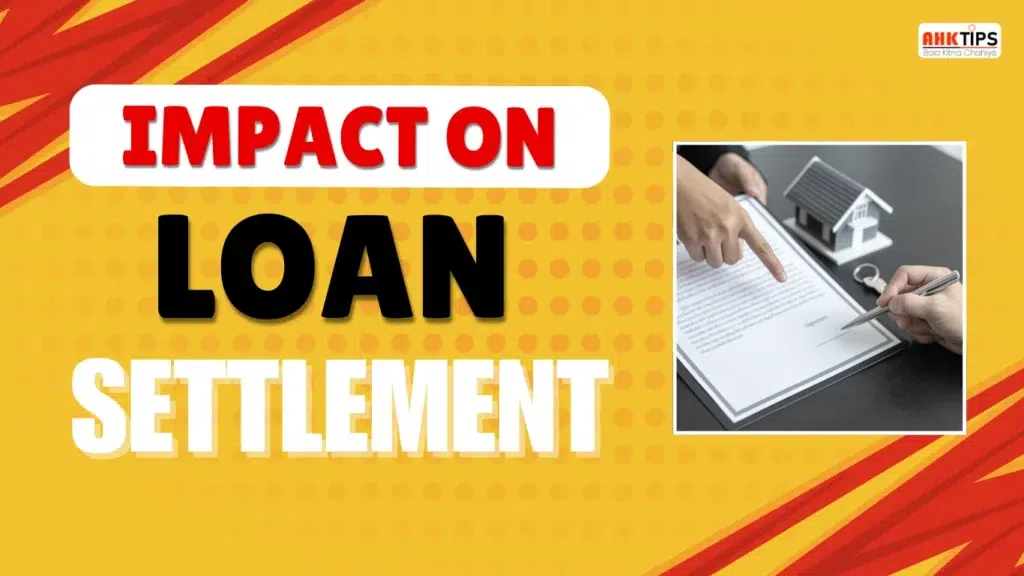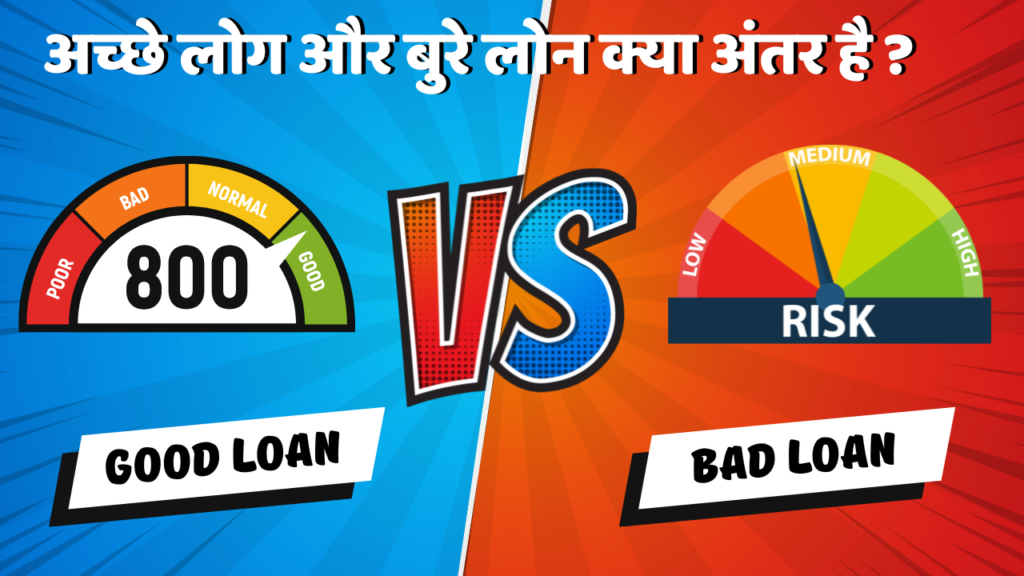Summary
While loan settlement impact ruins your CIBIL score, it allows you to cancel a loan when full repayment is not possible. A loan labelled “settled” instead of “closed” might lower your credit score by 75 to 100 points or more; this note stays on your report for seven years. It tells lenders you missed complete repayment, which makes future borrowing more difficult. Though it takes time—usually 1 to 3 years of timely EMI payments, responsible credit use, and financial discipline—reversal is achievable. Rebuilding your score calls for limited credit use, secured credit cards, and avoidance of several loan applications. Though nonetheless significant, a settlement is somewhat less detrimental than a full loan default. To minimise long-term credit damage, wherever at all feasible, take into account restructuring or moratoriums before deciding on settlement.
Introduction
Out of all debt-related issues, loan settlement seems to be the fastest solution. It pays less than outstanding and lets you close the account. This break comes with a cost, though; your CIBIL score can decline drastically. Many people are not aware that a “settled” notice on your credit report shows financial trouble to subsequent lenders. Should you be able to progressively raise your score, this could endanger your future creditworthiness. This advice describes your prospective fall in score, the length of the effect, how to recover from it, and what decisions are better than debt settlement. Understanding how settlement influences your credit profile can help you to guard your financial future, make wise decisions, and fix your credit the right way.
How Much Does Loan Settlement Reduce Your CIBIL Score?
When you are unable to pay back your debt in full, loan settlement provides instant comfort, but it has a big disadvantage: your CIBIL score suffers greatly. Particularly when recorded as “settled” rather than “closed,” many borrowers are unaware of how significantly a loan settlement may affect their credit profile. Making this choice requires first knowing the CIBIL score decline following loan settlement.
What Happens When a Loan Is Marked as Settled?
Negotiating a loan settlement with your bank results in pay-back less than the outstanding balance overall. The lender marks your credit record as “settled” instead of “closed,” after accepting this partial payment as final. This status tells other financial institutions the loan was not paid in whole.
Lenders view a ” settled” account as reflecting credit risk. It indicates that the bank had to compromise since you did not follow the initial repayment terms. Your CIBIL score dropped significantly since your creditworthiness is thus regarded as inadequate.
How Much Will Your CIBIL Score Drop After Loan Settlement?
Your current credit profile determines your CIBIL score, however generally it can decline by 75 to 100 points or even more. Should your credit score be already poor before the settlement, the damage may be more severe. For individuals with a clean credit record, the reduction may still be obvious and could drop your score below the minimum needed for credit cards or future loans.
The effect is particularly substantial as CIBIL bases scoring mostly on repayment behaviour. A settled status lowers your whole credit score by indicating that you are less likely to meet future debt obligations.
How Long Does the Settlement Affect Your CIBIL Score?
A settled status shows on your CIBIL record for seven years once reported. Lenders looking over your credit report at this time could pause or turn down fresh loan applications. The “settled” tag raises questions, even if you raise your score by timely payment of future EMIs.
Higher credit limits, pre-approved loan offers, or competitive interest rates are tough to qualify for, or given this, extended to have a loan settlement impact. If accepted, you might have to offer more evidence or pay higher prices.
Is It Possible to Rebuild Your Score After Settlement?
Although the initial CIBIL score declines sharply upon debt settlement, with regular effort recovery is feasible. By timely repayment of current loans or credit card debt, you can restore your creditworthiness, avoid fresh defaults, keep a balanced credit mix, and minimize credit searches.
Your credit history may show improvement over time, but until the lender agrees to delete or update the “settled” label as “closed,” it won’t be erased. Rarely, banks may change the status to enhance your report once the remaining debts have been paid off following settlement.
Should You Go for a Settlement If It Hurts Your Score?
The settlement of a loan should come last. Settlement can be your only choice if you are under great financial strain and cannot control EMIs even following restructuring or deferral. Still, you have to be conscious of the long-term restrictions and effects on your credit score.
Should maintaining your CIBIL score be a top priority, investigate restructuring, balance transfers, or converting unsecured debt to secured loans. These choices can offer relief without aggravating the extreme credit damage connected with a settlement.
How Long Does It Take to Rebuild Your CIBIL Score After Settlement?
Loan settlement creates a long-lasting effect on your credit rating, even if it offers momentary financial relief. Many borrowers want to know how long it takes to recover their CIBIL score following loan settlement, since many of them worry about the damage to their credit health. Your repayment behaviour, financial discipline, and the actions you take following debt settlement will determine the answer.
Understanding the Loan Settlement Impact on CIBIL Score
Should a lender classify your loan account as “settled,” it indicates that you did not pay back the loan in whole. This status is reported to CIBIL and will lower your score by 75 to 100 points or more. It also indicates to potential lenders that you failed to satisfy your past-due debt.
The “settled” comment shows on your credit record for seven years. Still, the time it takes to raise your CIBIL score following loan discharge is not that long. Starting with the right actions, you should begin to observe progress in one year and obtain a solid score in two to three years.
Initial Recovery: The First 6 to 12 Months
The first six to twelve months following settlement are very vital. During this time, your emphasis should be on demonstrating good, credible behaviour to help lenders regain confidence. This includes paying all current EMIs or credit card debt on time, avoiding fresh defaults, and not requesting several new loans at once.
Regularly paying back a small personal loan or a secured credit card will help you show good activity on your credit report. These fresh entries start to counteract the negative effects of the settlement position.
Medium-Term Rebuilding: One to Two Years
If you keep constant payback discipline, your score will begin to stabilize between the first and second year. Steer clear of excessive credit use at this period and make sure your credit accounts are active but not overdone.
Particularly if they have established additional credit lines and kept decent payment records, many borrowers start to see their scores slide back into a more reasonable range within 12 to 24 months.
Lenders still clearly see the “settled” term, though. Your score might rise, but some banks might still be reluctant or apply tight loan restrictions. Usually, only until the status ageing recovers full credit confidence, and multiple years of positive repayment history overwhelm it.
Long-Term Improvement: Two to Three Years and Beyond
Those who regularly follow sensible credit practices often find their score reaching or even crossing the 700 threshold in the third year following settlement. This is the threshold at which lenders begin to take you under consideration once more for less restricted new credit.
If your recent credit history is clean, well-managed, and consistent, the “settled” comment loses relevance over time, even if it is still visible. Rarely, you could be able to work with the lender to have the status changed to “closed,” which would raise your score if full repayment is completed.
Rebuilding Requires Patience and Discipline
How you handle your credit following debt settlement determines just how quickly you repair your CIBIL score. There isn’t a night fix. Within two to three years, however, you can rebuild your credit rating with careful planning, sensible borrowing, and timely payments.
How a Settled Loan Affects Creditworthiness
Those who cannot fully pay back loans could decide to settle them with the bank. Although this might seem like a sensible fix, in the realm of credit scores and financial confidence, a settled loan presents a different picture. Knowing how loan settlement impact creditworthiness will help you avoid blunders endangering your financial future.
How Credit Bureaus Interpret Settlement
Credit agencies track every loan, including CIBIL, Equifax, and Experian. A loan settlement marks as evidence of financial difficulty for the borrower.
One gets a negative mark from this. Although the loan account is no longer active, the “settled” status remains on the credit record for years, often for seven years. Lenders could see the borrower as risky during this period.
Why Banks Consider Settled Loans Negatively
Break in Repayment Trust
A loan settlement shows that the borrower did not pay back the entire pledged sum. This errs the confidence between the lender and borrower. Trust is a big determinant of banks’ decision on whether to accept the next credit.
Higher Perceived Risk
Banks use past performance to project future behaviour. A settled loan implies that the borrower might go back to default. This negative flag lowers the creditworthiness even if the person later has a consistent income.
Impact on Loan and Credit Card Approvals
When lenders see a settled status on the credit report, they generally refuse loan or credit card applications. Should the borrower be approved, there may be smaller limitations, harsher terms, or higher interest rates.
How It Impacts Your Credit Score
A loan settlement impact results in much lower credit scores. Since a good portion of the credit score is based on payback history, one resolved loan will lower the score. This makes it more difficult to qualify for advantageous loan terms down the road.
Alternatives to Loan Settlement
Borrowers should investigate other possibilities instead of paying off a loan:
Loan Restructuring
Banks can let the borrower lower the E MI or extend the payback time for a few months. This is a better indication of the borrower’s payability than settling.
Taking a Temporary Moratorium
Should the financial difficulties be temporary, a moratorium can stop payments without compromising credit ratings. Still, the bank must approve this and might call for interest charges.
Borrowing from Other Sources
Sometimes it’s better to close a loan totally by borrowing from low-interest sources, friends, or relatives than by settling. Paying out the whole debt keeps the credit report clear.
What You Should Do If You Have Already Settled a Loan
One can still rebuild credit even if one has already paid off a loan. First, pay all other EMIs and bills on schedule. Applying for minor credit products and keeping minimal credit use helps Constant goober behaviour over time will help to lessen the effect of the settled position.
Steps You Can Take to Repair Your CIBIL Score After Settling a Loan
While it could offer some temporary respite, paying off a loan typically results in a bad mark on your credit record. A loan settlement shows as proof of partial payments on your CIBIL report. This lowers your credit score and turns off lenders. Still, by following these rules, you can improve your CIBIL score upon settlement and reestablish financial confidence.
Understand the Impact of Loan Settlement
Raising your score will depend on knowing how settlement affects it. Should a lender mark your account as “settled,” you did not pay back the whole due amount. This points to your prospective danger to potential lenders. Your CIBIL score falls as a result, which could make an acceptable loan or credit card application difficult.
Begin with Reviewing Your CIBIL Report
First, get a copy of your CIBIL report. Review concerning the following:
- The loan account that was settled
- Any errors in the report
- Outstanding dues or defaults
Rebuilding your score starts with your report being corrected for any mistakes.
Repay Remaining Dues If Possible
By negotiating with the lender, one might help pay back the outstanding loan even after it is recorded as resolved. Should the lender approve, the status could be altered to “closed,” therefore strengthening your credit record. Though it takes effort, this will speed up your CIBIL score’s improvement.
Start Using Credit Responsibly Again
Apply for a Secured Credit Card
Banks issue secured credit cards against fixed deposits. These are more easily available and, with reasonable use, will raise your score. One assists by keeping modest consumption and paying the dues on time.
Maintain a Low Credit Utilisation Ratio
Using less than half of your credit shows financial discipline. Your credit score improvement month by month is primarily due to this.
Never Forget a Payment
Every on-time payment increases your CIBIL rating. Plan reminders or auto-debits to ensure every bill and EMIs are paid before the due date.
Keep Old Credit Accounts Active
Older credit accounts with a reasonable history of performance produce good credit profiles. Close old cards or accounts as necessary. The length of your credit record affects your CIBIL score.
Avoid Multiple Loan Applications
Too many loan or credit card applications taken out over a short time suggest desperation. Every application starts an extensive research process that could significantly lower your score. Use only when you are certain of clearance.
Monitor Your Credit Score Regularly
Track development by varying your CIBIL score several months apart from your current CIBIL score. Seeing your score rise could motivate you and keep you vigilant about any issues that might come back.
Build a Habit of Financial Discipline
Monthly income budgeting, avoidance of needless expenses, and consistent savings produce better credit behaviour. These actions reveal your credit-related attitude, and over time, they will automatically increase your CIBIL score.
CIBIL Score Settlement vs Default: Which Affects You More?
Two typical choices when you find yourself unable to pay back a loan are default and settlement. But how might these decisions affect your creditworthiness? Let’s dissect the variations to find which one most affects your CIBIL score.
Impact on CIBIL Score
A settlement demonstrates that you couldn’t fully pay back your debts, thus your CIBIL score suffers. Future lenders find this to be a warning of risk. Your score could drop greatly, and it will stay on your report for a lengthy period.
What is a Loan Default?
A default indicates that you have stopped paying back your loan. The lender notes the account as “written-off,” or “defaulted,” after several missed payments.
Impact on CIBIL Score
A default dramatically lowers your CIBIL score. One considers it a major neglect of your credit obligations. Like settlements, it stays on your record for years and lowers your chances of obtaining credit going forward.
CIBIL Score Settlement vs Default: Which is Worse?
Both choices lower your CIBIL score; yet, a default is usually regarded as worse than a settlement. A default reflects total non-payment, but a settlement at least shows some effort to pay back.
Still, neither is flawless. Early communication with your lender and searching for alternatives like restructuring will help you if you are having trouble paying back. You will be free from default as well as settlement.
Conclusion
Loan settlement impact could have long-term consequences on your creditworthiness, even if it would bring some short-term comfort. A “settled” credit report status could cause your CIBIL score to be considerably decreased and expose you for up to seven years. This reduces loan or credit card acceptance, or raises your chance of higher interest rates. Still, over time, consistent repayment behaviour, financial discipline, and savvy credit use allow you to increase your score. The first six to twelve months after settlement are rather crucial. Rebuilding needs not only dedication but also patience and a solid financial plan. Before choosing a loan, always look at other options, including temporary relief organising. If you have previously paid your bills, focus on solid credit to get the lender‘s trust. Good financial habits determine your future and help you to repair your credit score.
FAQ’s
Depending on your prior credit history, a loan settlement can lower your CIBIL score by 75 to 100 points or more.
It lasts seven years and may influence your credit card or loan eligibility during that period.
Indeed, you may raise your score in one to three years by paying on time, using credit wisely, and keeping modest credit use.
Although both damage your credit, as it indicates some repayment attempt, a settlement is typically considered as less bad than a full default.













